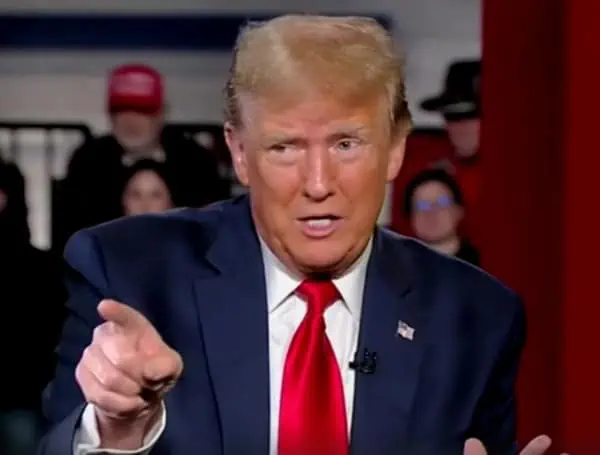Democratic District Attorney Alvin Bragg in New York City tortuously seeks to turn a local misdemeanor bookkeeping violation into a federal crime by alleging former President Donald Trump somehow skirted federal election laws by reportedly paying a porn actress $130,000 in 2016 to stay quiet about an affair.
Yet the Democratic judge overseeing the proceeding has blocked the one expert witness who could shed the most light on the federal laws in question — while allowing Trump’s former lawyer to discuss the supposed outlaw behavior despite his own admissions of perjury and embezzlement.
Read: Jonathan Turley Sounds Alarm About Key Jury Instruction Being Pushed By Alvin Bragg’s Team
Former Federal Elections Commissioner Bradley Smith, a Republican, told The Washington Examiner on Monday that he was prepared to be an expert witness on Trump’s behalf to testify about the Federal Election Campaign Act, the umbrella under which Bragg seeks to convict Trump.
Instead, he left the courthouse Monday without getting to testify.
As columnist Byron York noted, “The problem for Trump is that Judge Juan Merchan does not want to hear from Smith.”
“Early on, Merchan barred Smith from testifying about virtually anything that had anything to do with the Trump case. He barred Smith from testifying about the campaign finance laws at the heart of Bragg’s charges against Trump. He barred Smith from testifying about anything except general facts about the job of the FEC or the definition of some common campaign terms,” York continued.
“In the end, the Trump team decided it was not worth calling Smith to testify under what amounted to a judicial gag order.”
Read: Attorney Says Judge’s Instruction Could Move Jury ‘A Lot Further Towards’ Trump Acquittal
Smith told York that he would not have given his opinion on the charges, knowing Merchan would have quashed that.
Instead, he wanted to discuss for the jury what a “very complicated piece of machinery” the federal law at issue is.
Smith observed that the law states, “anything intended for the purpose of influencing an election is a contribution or an expenditure.”
Yet he also explained, as would have benefitted Trump, that “it includes a broader, general prohibition that says you can’t divert [campaign funds] to any obligation that would exist even if you were not running for office.”
“Under the personal use rules, a lot of things candidates do running for office are not considered campaign expenditures, things like paying for a weight loss program or a gym membership, nicer clothes, teeth whitening, or all that sort of thing,” Smith continued.
Read: James Carville Tells MSNBC Age Issue Is Suffocating’ Biden, Tells Him To ‘Turn That Around’ On Trump
“It may be true that you do those things in part to help yourself get elected — you might not do them otherwise — but they are not obligations that exist simply because you are running for office. Lots of people do those things.”
He pointed out that Hillary Clinton bought a house in New York specifically to run for the Senate. That was for her campaign, but it was also for her personal use.
“I can tell you my personal belief is that clearly paying hush money, or paying for a nondisclosure agreement, does not constitute a campaign expense,” Smith added.
He likened it to a wealthy businessman running for office who, to improve his standing with voters, opts to pay off people seeking to sue the company rather than pursue the case in court, even if he could win.
“My personal belief is that this clearly would not have been a campaign expenditure, never had to be reported, and therefore was not misreported,” Smith told York.
Help support the Tampa Free Press by making any small donation by clicking here.
Android Users, Click To Download The Tampa Free Press App And Never Miss A Story. Follow Us On Facebook and Twitter. Sign up for our free newsletter.

